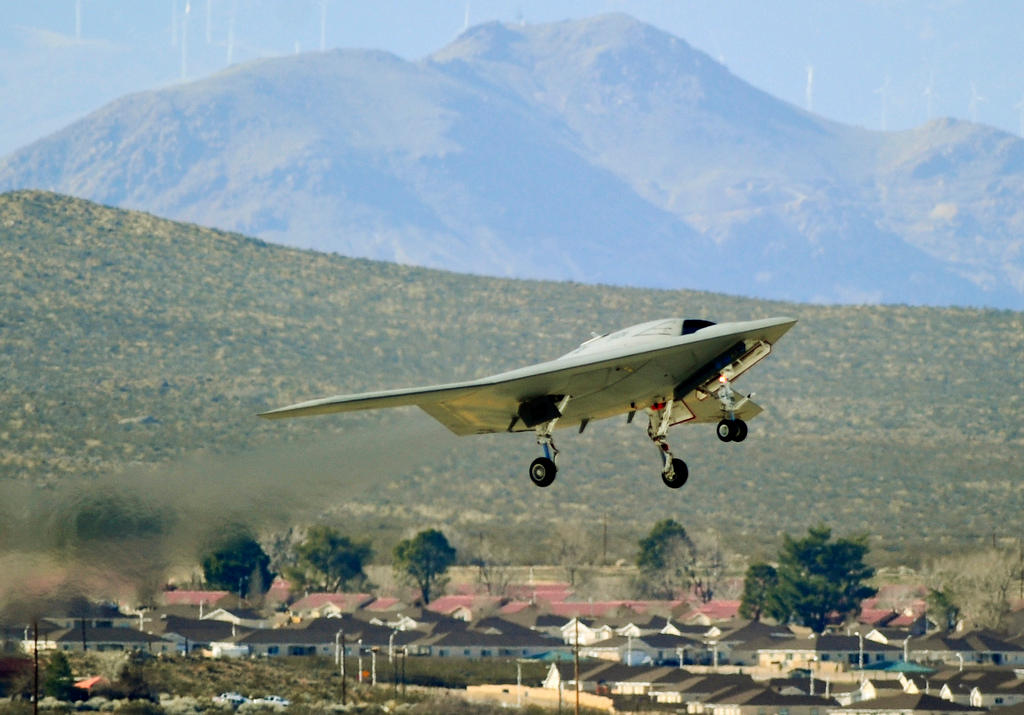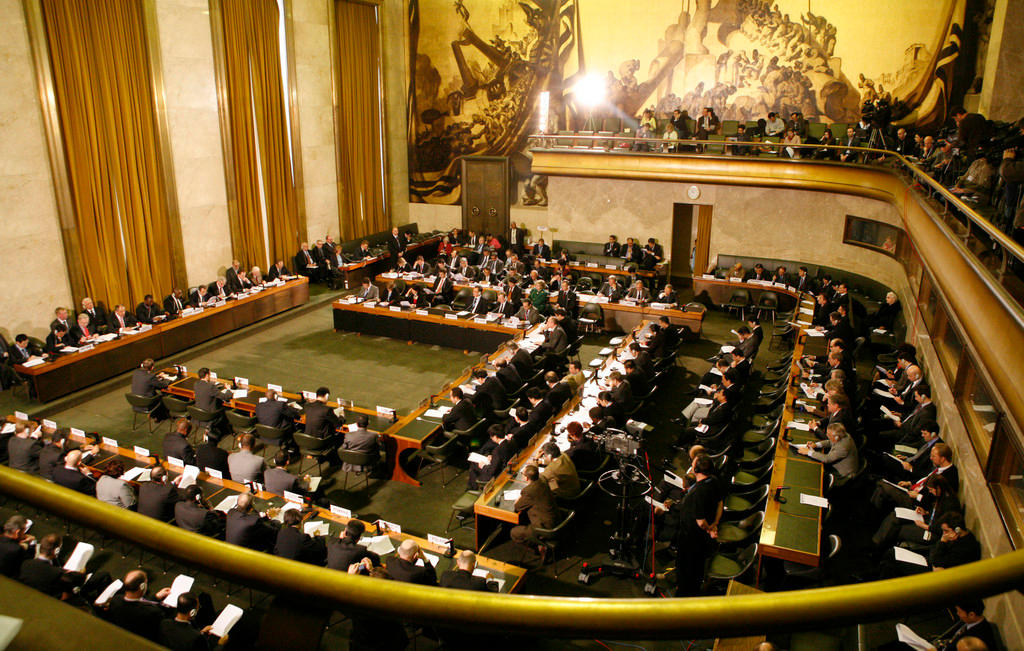What’s to be done about killer robots?

Activists seeking to persuade nations to ban so-called killer robots say they are cautiously optimistic about official talks on the future of such autonomous weapons, which reconvened at the United Nations in Geneva on Monday.
This week over 120 United Nations member states are meeting at the Palais des Nations complex to continue expert talks on the future challenges posed by lethal autonomous weapons systems (LAWS), decried as “killer robots” by critics.
Since 2014, diplomats, disarmament experts and civil society groups have met five times in the framework of the Convention on Certain Conventional Weapons (CCW)External link to discuss the multiple ethical, legal, operational and technical challenges of such systems.
Most states acknowledge that some action is needed to address concerns over the robots but seem to differ on the form it should take. While countries agree that international law should apply to the future development of LAWS, there is still no common agreement on the exact definition of a killer robot or on the mechanism by which continued “human control” must be exercised over such a weapons system.
Several countries have committed to not acquiring or developing LAWS, and 22 countries support a pre-emptive ban. Meanwhile, campaigners warn that countries like the United States, China, Israel, South Korea, Russia and Britain are pushing ahead with the use and development of armed drones and other autonomous weapons systems with decreasing levels of human control.
Swiss position
Switzerland is sceptical about a preventive ban at this stage but it backs practical, and if necessary, regulatory measures to prevent any use of LAWS that would violate international law. Last year, it tabled a working paper entitled a “Compliance-based approach to Autonomous Weapons SystemsExternal link” that reaffirms the importance of international law.
Sabrina Dallafior, Switzerland’s ambassador to the UN in charge of disarmament issues, recently told Swiss public television, SRFExternal link: “Ultimately, in terms of autonomous weapons, we have to decide whether we can delegate a life-or-death decision to a machine. We must agree on how much autonomy is acceptable or inacceptable. Acceptable or desirable autonomy could include weapons that are so precise that there’s no collateral damage or no civilian victims.”
Meanwhile, parliamentarians Chantal GalladéExternal link and Beat FlachExternal link last year filed questions in Bern urging the government to seek an international ban on LAWS. The Federal Council rejected both questions, arguing that it had “reservations” about a ban. Didier Burkhalter, foreign affairs minister at the time, told parliament that “all issues should be clarified” at the CCW before deciding on a possible ban.
‘Right direction’
Ahead of the Geneva meeting, campaigners said the killer robot talks seemed to be going in the right direction.
“We are clearly moving out of a technocratic debate into a political debate,” said Maya Brehm of the Swiss branch of Article 36External link, a non-governmental organisation working to prevent weapons proliferation.
Mary Wareham, who coordinates the Campaign to Stop Killer RobotsExternal link, said activists were “cautiously optimistic” about progress. The campaign includes groups that successfully lobbied to have international action taken against cluster bombs and landmines.
“In the campaign’s view, permitting a machine to take human life on the battlefield is a step too far which crosses a moral line that should never be crossed. I think a lot of governments see that serious concern and share it,” she said.
No formal decisions on LAWS are expected at this week’s gathering, nor at another scheduled meeting in August. The aim this year is to come up with a proposal on the way forward that could be adopted at a CCW meeting on November 21-23.
Activists, meanwhile, argue that with adequate political will and a coordinated effort, an international treaty prohibiting the development, production and use of killer robots could be negotiated by the end of 2019.
Leadership?
The clock is ticking, the global campaign warns, and if the CCW is not up to the job, other diplomatic options should be explored.
“Nobody’s talking about taking this process outside the CCW this year, but the pressure will become stronger the longer it takes governments to decide what they want to do about this,” Wareham said.
However, in the event this would probably require a state to lead the process, like Canada with the anti-landmine movement in the 1990s or Norway in the 2000s and the fight against cluster munitions.
“Who is it going to be this time round? What would hold Switzerland back from taking action on this?” she asked.
“There are parliamentarians who are keen on the issue… Switzerland is very engaged in this diplomatic effort and asking questions about the adequacy of international humanitarian law. We know from experience that Switzerland is a good player when trying to resolve international issues in a principled manner. The size of your country shouldn’t matter when it comes to multilateralism and leading a broad group of countries.”

More
Geneva disarmament process targets killer robots

In compliance with the JTI standards
More: SWI swissinfo.ch certified by the Journalism Trust Initiative













You can find an overview of ongoing debates with our journalists here . Please join us!
If you want to start a conversation about a topic raised in this article or want to report factual errors, email us at english@swissinfo.ch.